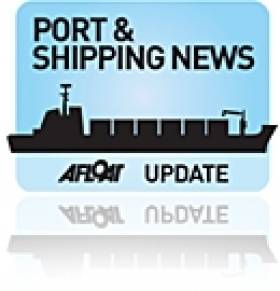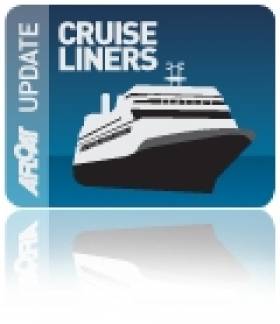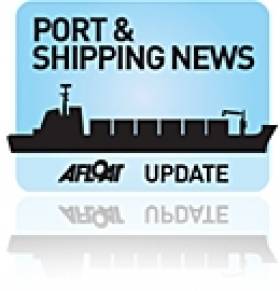Displaying items by tag: Lyubov Orlova
'Ghost Ship' Still Missing, Believed Vanished In Atlantic
#GhostShip - The saga of the 'ghost ship' MV Lyubov Orlova may finally be at an end, with word that the "rat-ridden" former polar cruise liner has "vanished from the high seas", according to the Irish Independent.
Earlier this year, as reported on Afloat.ie, the Irish Coast Guard was put on alert after indications that the ship - which broke free from its tow line wile being transported from Canada to the Caribbean for scrapping - was adrift in the Atlantic some 2,400km off the West of Ireland.
With no working transponders on the vessel, and no visual confirmation, it was thought weeks later that the Lyubov Orlova may have sunk as it drifted towards Europe.
And later it was suggested that it could be resting at the bottom of the ocean leaking hazardous waste into the delicate deep sea environment - though it's now believed the ship did not carry enough oil to cause a problem.
Even so, there is a chance that the vessel may still be adrift, somehow avoiding detection by passing sea traffic or aircraft, and its cargo of shipborne rats would be considered a biohazard if it reached our shores, according to the Irish Coast Guard chief.
"We don't want rats from foreign ships coming onto Irish soil," said Chris Reynolds. "If it came and broke up on shore, I'm sure local people wouldn't be very happy about it."
The Lyubov Orlova - named after a famous Russian film star - is the sister ship of the polar cruiser Clipper Adventurer, the first cruise liner to visit Drogheda Port.
Russian Ghost Ship May be On Ocean Floor
#GhostShip- According to FoxNews, the 4,521 tonnes Russian ghost ship, Lyubov Orlova that has been drifting in the Atlantic Ocean since a tow line snapped months ago, and has yet to be spotted, has left some to speculate that it may be resting at the bottom of the ocean, leaking toxic waste.
The Canadian Coast Guard has told CBC News that it has not received any reported sightings of the Croatian built small cruiseship Lyubov Orlova since 12 March.
Lyubov Orlova was named after an iconic Russian film actress — was being towed from Canada to a scrapyard in the Dominican Republic in January when a cable snapped, leaving the 295-foot vessel adrift. A brief effort to re-secure the boat was abandoned days later due to rough seas.
FoxNews has more on this story about the vessel which is a sister of the Clipper Adventurer, which Afloat.ie covered during the first ever cruise call to Drogheda Port last year.
Drifting ‘Ghost' Ship’s Sister Made Historic Call to Drogheda
#GhostShip – As previously reported on Afloat.ie, the 'ghost' ship Lyubov Orlova, which broke its tow-line in the Atlantic more than three weeks ago is a sister of the first cruiseship caller to Drogheda Port, writes Jehan Ashmore.
The small cruiseship, Lyubov Orlova of 4,251 tons was built in Croatia a year before Clipper Adventurer, which made a historic call to the port on the Boyne last year. Clipper Adventurer, which was at one stage the Alla Tarasova and Lyubov Orlova belong to a series of eight sisters built for the Murmansk Shipping Company.
As ice-strenghtened vessels, they are designed to withstand heavy seas while operating as expedition ships, carrying passengers to both the Arctic and the Antarctic.
According to Travel.aol.co.uk, the drifting vessel is some 1,200 (nautical miles) off Galway.
A report in Canadian news service The National Post says that the Irish Coast Guard is examining satellite imagery to ensure the ship can be retrieved before it breaks apart or drifts into shipping lanes.
Responsibility for the vessel has already been disavowed by the Canadian authorities after the vessel, which was being towed from Canada to the Dominican Republic for scrapping, broke loose from its cabling.


























































